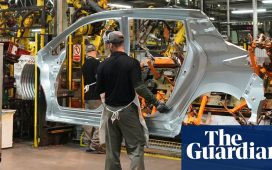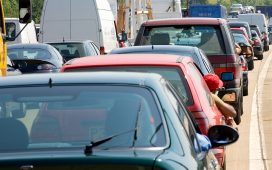The international tax network organisation Tax Natives has urged all drivers to do one thing ahead of a major change due to affect them in 2025.
With the October Budget just weeks away, many Brits are bracing for new measures that could leave them worse off than before, particularly when they are behind the wheel.
As a result, Andy Wood, motoring expert at Tax Natives, advised drivers to check the tax classification of their vehicle ahead of price rises.
He explained: “With the upcoming introduction of Vehicle Excise Duty (VED) for electric and low-emission vehicles in April 2025, the Government is aiming to ensure the system of vehicle taxation is ‘fair’ for all motorists, as highlighted by former Chancellor Jeremy Hunt in the 2022 Autumn Statement.
“While the change is a significant shift, many drivers may not be prepared for the extra cost, and it’s essential to check your vehicle’s tax status ahead of time to avoid surprises.”
Currently, VED, better known as road tax, is initially based on the amount of carbon dioxide produced by the engine, with drivers paying a flat rate of £190 for each year afterwards.
Whilst the Government has reassured drivers that a pay-per-mile system of taxing vehicles will not come into effect in the October Budget, more drivers will need to pay from April 2025.
This includes owners of electric vehicles, who have received an exemption from paying tax until this point in a bid to persuade more drivers to make the switch from a petrol or diesel model.
Nevertheless, Andy recommended that some drivers will be able to avoid paying tax on certain vehicles, but should still make sure to check their classification to avoid being charged unnecessarily.
He advised: “Despite these new regulations, it’s important to note that some vehicles will remain exempt from paying VED. According to the V355/1 DVLA document, there are several vehicle categories that still qualify for exemption, such as vehicles used by disabled individuals, historic vehicles over 40 years old, NHS, police, and fire service vehicles, as well as certain ‘limited use’ vehicles in agriculture and forestry.
“Ensuring these vehicles are correctly classified in the DVLA system will be crucial to avoid unnecessary payments after April 2025.”











